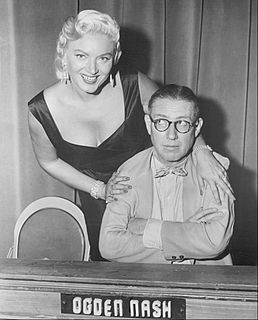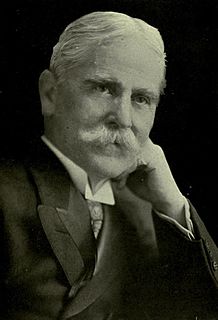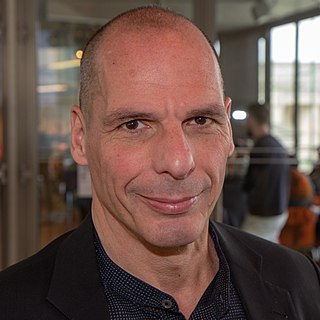A Quote by Ogden Nash
One rule which woe betides the banker who fails to heed it/Never lend any money to anybody unless they don't need it.
Related Quotes
Warren Buffett likes to say that the first rule of investing is "Don't lose money," and the second rule is, "Never forget the first rule." I too believe that avoiding loss should be the primary goal of every investor. This does not mean that investors should never incur the risk of any loss at all. Rather "don't lose money" means that over several years an investment portfolio should not be exposed to appreciable loss of principal.
Reality is a state of mind. To the banker, the money in his ledger book is all very real, though he doesn't actually see it or touch it. But to the Brahma, it simply doesn't exist the way the air and the earth, pain and loss do. To him, the banker's reality is folly. To the banker, the Brahma's ideas are as inconsequential as dust.
Money is preferable to politics. It is the difference between being free to be anybody you want and to vote for anybody you want. And money is more effective than politics both in solving problems and in providing individual independence. To rid ourselves of all the trouble in the world, we need to make money. And to make money, we need to be free.
Is money money or isn't money money. Everybody who earns
it and spends it every day in order to live knows
that money is money, anybody who votes it to be
gathered in as taxes knows money is not money. That
is what makes everybody go crazy.... When you earn
money and spend money every day anybody can know the
difference between a million and three. But when you
vote money away there really is not any difference
between a million and three.
Doing good with other people's money has two basic flaws. In the first place, you never spend anybody else's money as carefully as you spend your own. So a large fraction of that money is inevitably wasted. In the second place, and equally important, you cannot do good with other people's money unless you first get the money away from them. So that force - sending a policeman to take the money from somebody's pocket - is fundamentally at the basis of the philosophy of the welfare state.







































